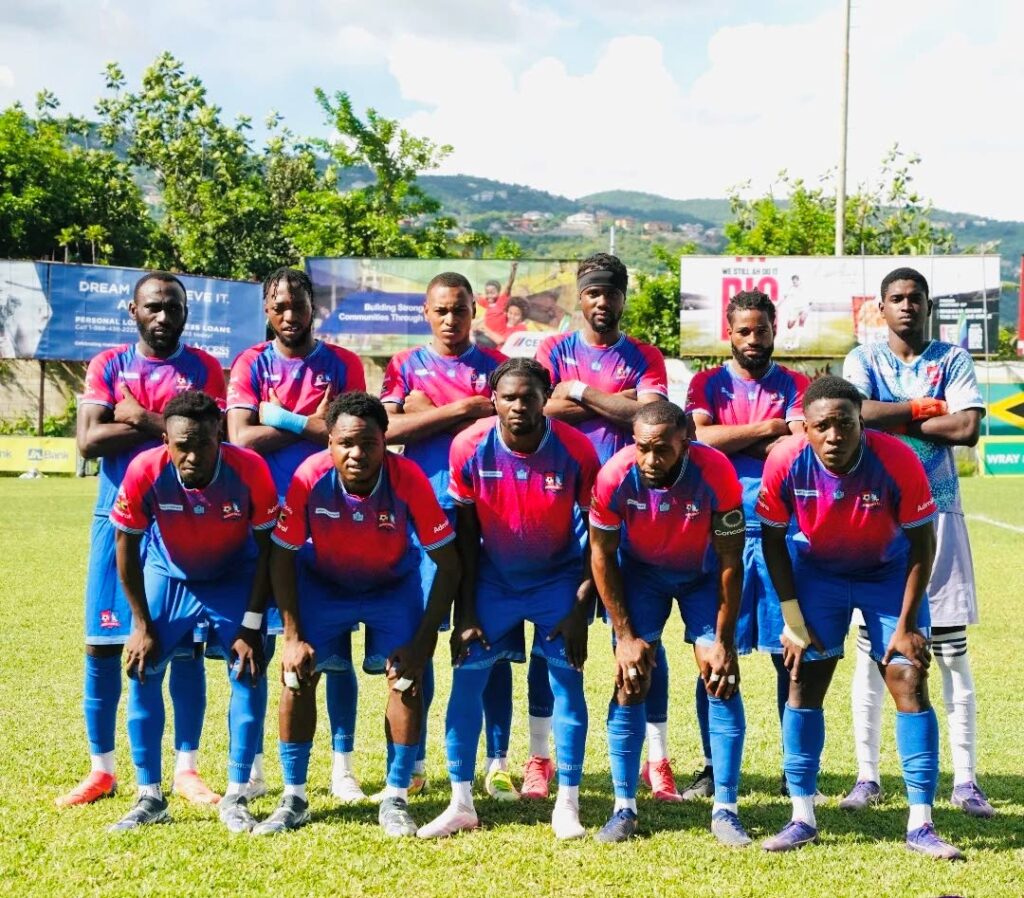In a tightly contested Jamaica Premier League clash on Monday evening, Dunbeholden FC suffered a narrow 1-0 loss against former champions Arnett Gardens at the Anthony Spaulding Sports Complex. Despite the setback, the St Catherine-based club maintains unwavering focus on achieving its seasonal ambitions. Chief Commercial Officer Aubyn Henry emphasized that the disappointing outcome has not derailed the team’s confidence in its strategic direction. Henry outlined that this season has been defined by consistent effort and deliberate decision-making across all organizational levels, with visible progress reflecting their dedicated work. He expressed strong conviction that Dunbeholden remains on course to secure a playoff berth. The match’s decisive moment arrived during late-game transition play when Arnett Gardens capitalized to score the winning goal—a situation Henry acknowledged was challenging but illustrative of the fine margins in top-flight competition. Currently positioned ninth in the standings with 25 points, Dunbeholden trails the playoff cutoff by three points. Henry highlighted the squad’s ideal blend of experienced stability and youthful dynamism as fundamental to their competitive performances. He particularly praised the team’s mentality, noting players demonstrate remarkable composure, accountability, and deep understanding of club representation. As the league progresses into its critical phase, Henry recognized the intense demands of the Jamaica Premier League while expressing encouragement about collective development. He concluded with affirmed confidence that Dunbeholden FC will sustain its relevance in the playoff conversation through unified focus and disciplined preparation.
作者: admin
-
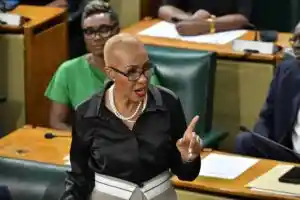
$14 billion added to budget as Williams tables fourth supplementary estimates
The Jamaican government has presented a substantial fourth supplementary budget allocation of $14.36 billion for the 2025-2026 fiscal year to address critical national priorities. Finance and Public Service Minister Fayval Williams presented the estimates before the House of Representatives on Tuesday, outlining the strategic distribution of these emergency funds.
The overwhelming majority of this allocation, approximately $13.4 billion, has been designated specifically for expenditures related to Hurricane Melissa. This funding received Cabinet approval following the preparation and authorization of the third supplementary estimates in December 2025. This substantial injection brings the total government allocation for Hurricane Melissa response and relief efforts to approximately $66.76 billion.
A significant component of this hurricane response package includes a $24.18 billion loan facility approved for the Jamaica Public Service Company to accelerate the restoration of electrical infrastructure across the island. Additionally, the Ministry of Health and Wellness will receive $400 million under the first phase of the hurricane rehabilitation program for public health initiatives. This health allocation includes $300 million for facility assessment and repair mobilization, with another $100 million dedicated to purchasing fixed assets for the affected region.
The supplementary estimates also include a strategic investment in Jamaica’s digital future, with $960 million allocated as an initial payment to Trans Americas Fiber Systems Limited. This payment follows the signing of a letter of intent between the company and the Jamaican government to pursue enhanced sub-sea fiber capacity, representing a significant step in strengthening the nation’s telecommunications infrastructure.
Furthermore, the estimates reflect adjusted central government budgetary support for the Development Bank of Jamaica, though specific allocation details were not disclosed during the parliamentary presentation. Minister Williams emphasized that these allocations represent necessary measures to address both immediate recovery needs and long-term infrastructure development priorities.
-

US judge halts end to Haitian migrants’ protections
A federal judge has issued a decisive injunction against the Trump administration’s attempt to revoke deportation protections for approximately 350,000 Haitian immigrants, whose Temporary Protected Status (TPS) was scheduled to terminate this Tuesday. In a comprehensive 83-page ruling, U.S. District Judge Ana Reyes delivered a stern rebuke to Homeland Security Secretary Kristi Noem, asserting she lacks the legal authority to dismantle these critical safeguards.
The court document presented compelling evidence that Secretary Noem’s termination decision appeared “substantially likely” to have been predetermined and motivated by racial animus toward nonwhite immigrants. Judge Reyes characterized Noem’s actions as “arbitrary and capricious” while acknowledging her constitutional right to express controversial views about immigrants—but emphasizing that such personal biases cannot dictate policy implementation.
This legal victory comes amid Haiti’s profound humanitarian crisis, where extreme poverty, rampant gang violence, and political instability have created unlivable conditions. Armed groups currently control significant portions of the country, including most of the capital Port-au-Prince. The nation’s transitional government remains exceptionally fragile, having held no elections in the past decade.
In Florida—home to over 150,000 Haitian TPS recipients—community leaders and lawmakers cautiously celebrated the ruling while recognizing the likelihood of an administration appeal. Miami-based county legislator and Haitian-born activist Marleine Bastien characterized the decision as “breathing room” rather than permanent stability, noting the irony that while U.S. citizens are advised against travel to Haiti, the administration sought to forcibly return immigrants to the same dangerous conditions.
The TPS program, designed to protect individuals from deportation to countries experiencing armed conflict, environmental disasters, or other extraordinary circumstances, has faced systematic dismantling under the current administration. Officials argue the program encourages undocumented immigration and has been improperly extended, particularly regarding Haiti’s designation following the catastrophic 2010 earthquake. The Biden administration most recently extended Haiti’s TPS designation in 2021.
-

Man shot and injured in Mount Salem
A targeted shooting incident in Mount Salem, St James sent shockwaves through the community on Tuesday afternoon, leaving one male victim hospitalized with serious injuries. The attack occurred in broad daylight along the main roadway near Brunswick Lane, an area now under intense police scrutiny.
Preliminary investigative reports indicate this was not a random act of violence. Evidence suggests the victim was deliberately followed by armed assailants who opened fire in a calculated assault. The severity of the victim’s injuries prompted immediate emergency response, with medical personnel rushing him to a nearby medical facility where he remains in serious condition.
Law enforcement authorities have secured substantial sections of the crime scene as forensic investigations continue. Yellow police tape cordons off critical areas where investigators are documenting ballistic evidence and gathering witness accounts. The Jamaica Constabulary Force has yet to establish a motive for the attack or identify potential suspects, with investigations ongoing.
This incident marks another episode in St James’s ongoing challenges with violent crime, particularly gun-related offenses. Community members express growing concern over public safety as police intensify their presence in the area. The investigation continues as authorities pursue all leads regarding this targeted shooting.
-
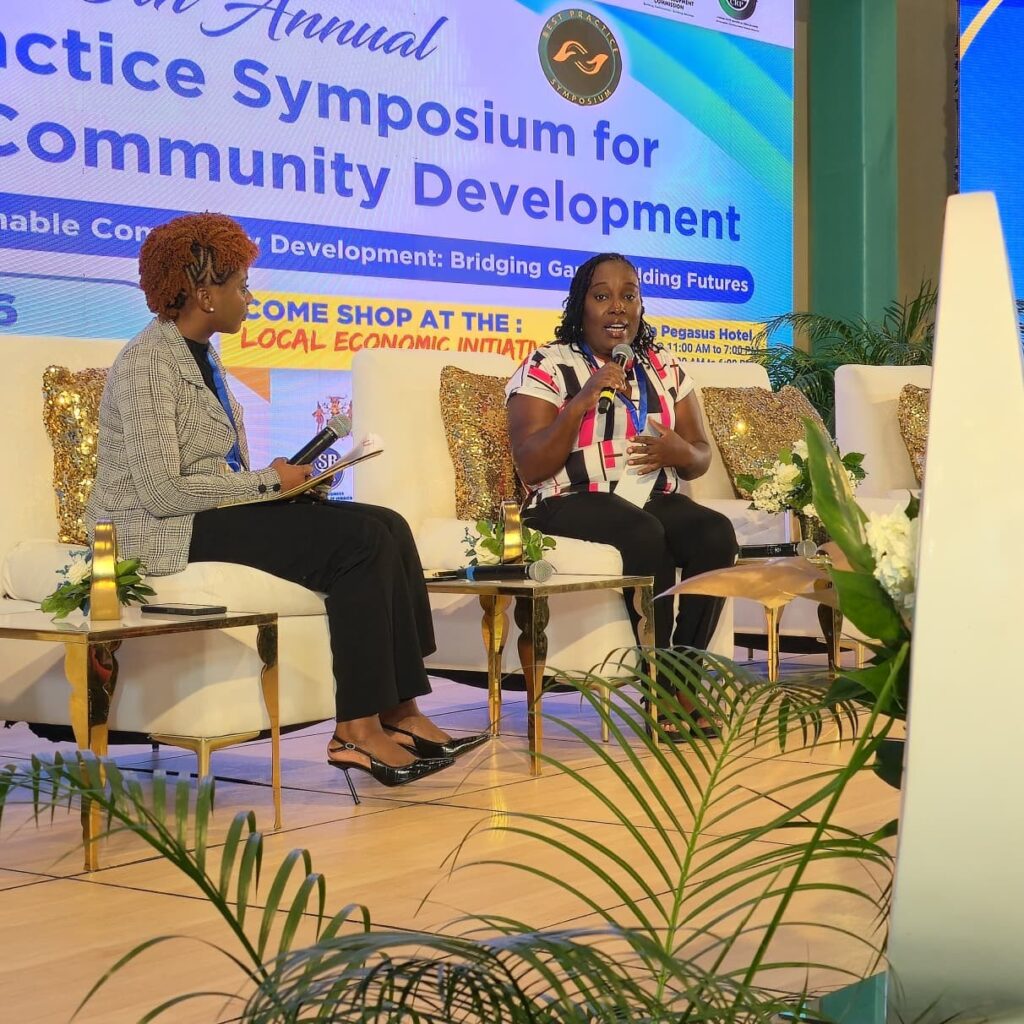
Former inmate credits rehabilitation programme for second chance
KINGSTON, Jamaica—A powerful testament to the transformative power of correctional rehabilitation emerged at the recent Planning Institute of Jamaica’s Best Practice Symposium for Social and Community Development. Taneka Stewart-Blake, formerly incarcerated at South Camp Adult Correctional Centre, credited structured rehabilitation programs for providing her with essential skills and renewed life purpose.
During her three-year incarceration from May 2022 to March 2025, Stewart-Blake overcame initial despair by engaging in educational opportunities. She earned multiple certifications including social studies, customer service through HEART/NSTA Trust, data operations, and biology—where she achieved top student honors. These qualifications directly facilitated her successful employment transition post-release, with data entry skills proving immediately applicable in her inventory management position.
The emotional dimension of rehabilitation proved equally crucial. Stewart-Blake emphasized the overwhelming support from family, neighbors, and coworkers who embraced her return without stigma. Her 83-year-old mother cared for her daughter throughout the incarceration period, while her church community provided spiritual solace during challenging times.
Commissioner of Corrections Brigadier (Retired) Radgh Mason highlighted that such success stories demonstrate the effectiveness of holistic rehabilitation approaches. The Department of Correctional Services implements comprehensive programs focusing on education, vocational training, psychosocial support, and spiritual development to reduce recidivism and promote successful societal reintegration.
South Camp Adult Correctional Centre specifically offers academic certification and skills training in cosmetology, sewing, data operations, customer service, and dance. Stewart-Blake’s advice to others emphasizes mindset transformation: “It all has to do with your mental state. If you set your mind to change, it can happen.”
-
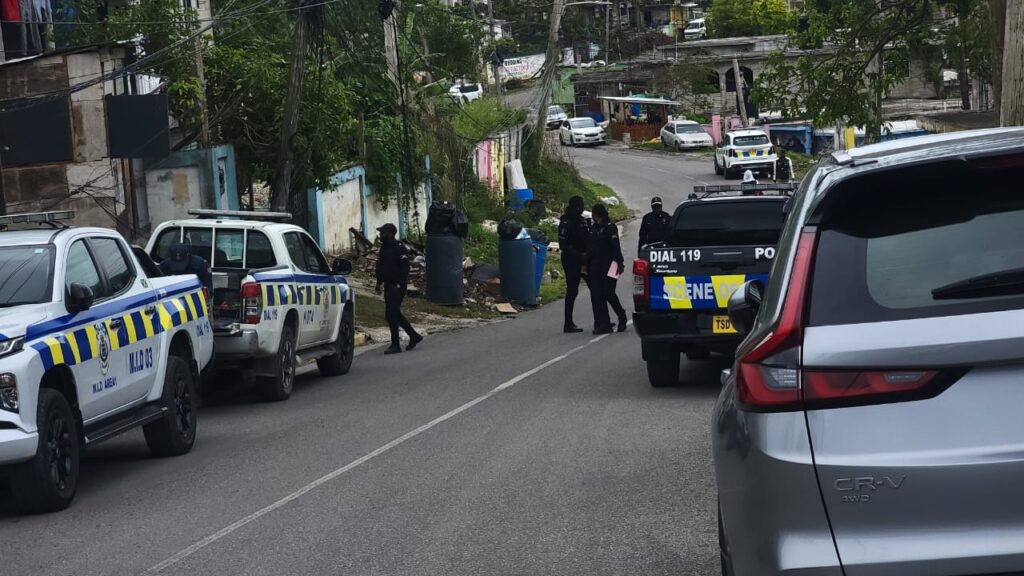
Police probe double murder in Norwood ZOSO
ST JAMES, Jamaica — A brutal double homicide has abruptly terminated an extended period of tranquility within the Norwood Zone of Special Operations (ZOSO), compelling local law enforcement to initiate a comprehensive investigation. The grim discovery occurred Tuesday morning when residents located the bullet-riddled corpses of two unidentified males, a scene that starkly contrasts with the area’s recent history of peace.
Prior to this incident, the Norwood ZOSO had maintained an impeccable security record, registering zero homicides or shooting incidents throughout 2025. This followed an equally peaceful 2024 during which the community similarly reported no murder cases, making Tuesday’s violence particularly shocking.
According to official statements from the St James police department obtained by Observer Online, authorities were alerted after local inhabitants stumbled upon the gruesome scene. Preliminary reports indicate that residents had previously heard auditory evidence of violence—described as ‘what sounded like gunshots’—echoing through the neighborhood on Monday night.
Law enforcement personnel responding to the emergency call confirmed the discovery of two deceased individuals, both exhibiting multiple fatal gunshot wounds. The investigation remains ongoing as police work to identify the victims and establish motives behind the killings that have disrupted the community’s prolonged spell of safety.
-
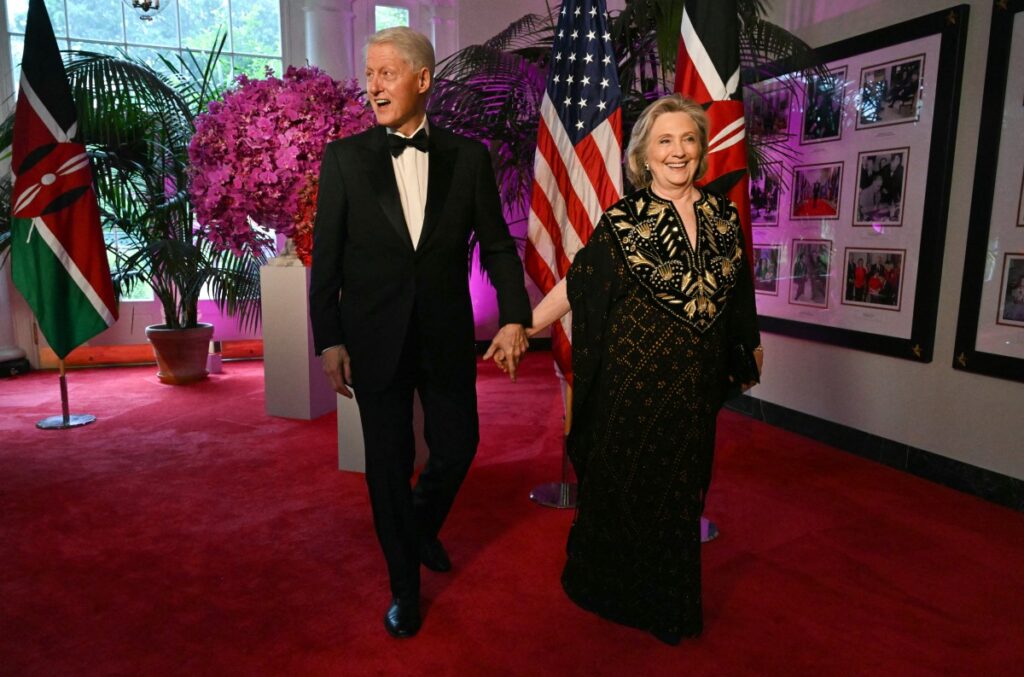
Clintons to testify on Epstein at end of February
WASHINGTON, United States – Former President Bill Clinton and former Secretary of State Hillary Clinton have agreed to provide testimony before Congress regarding their connections to the late financier and convicted sex offender Jeffrey Epstein. The announcement came from Republican Representative James Comer, Chairman of the House Committee on Oversight and Government Reform, on Tuesday.
The Clintons, initially defiant of congressional subpoenas, reversed their stance following the House’s move to hold them in contempt. Chairman Comer stated that the Democratic power couple had ‘completely caved,’ agreeing to participate in transcribed and filmed depositions scheduled for this month. Hillary Clinton is set to appear on February 26, followed by Bill Clinton on February 27.
The Epstein scandal, which continues to reverberate through Washington’s corridors of power, implicates numerous high-profile figures from business and politics. Epstein, who died in a federal jail in 2019 while awaiting trial on sex trafficking charges, maintained extensive networks among global elites.
The Justice Department’s recent release of over 3 million documents related to the Epstein investigation has intensified scrutiny, fueling fierce partisan debates. Democrats allege the congressional probe is politically motivated, engineered to target opponents of former President Donald Trump—a longtime Epstein associate who has not been summoned to testify—rather than pursue genuine oversight.
-
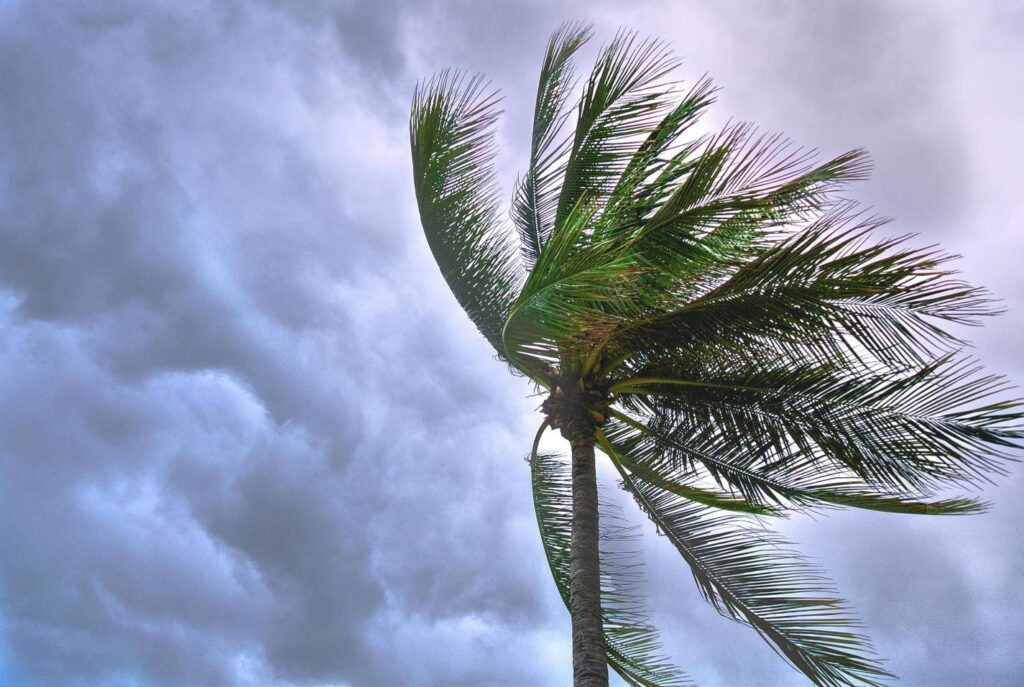
CariCOF warns of severe weather activity as early as April
BRIDGETOWN, Barbados – The Caribbean Climate Outlook Forum (CariCOF), headquartered in Barbados, has issued a significant weather advisory warning of severe meteorological events across the region. According to their latest three-month forecast covering February through April, unusually warm temperatures in the Tropical North Atlantic Ocean will trigger extreme weather patterns commencing as early as April.
The forecast indicates heightened risks for southern Belize, the Guianas, the Greater Antilles, and mountainous regions of the Lesser Antilles. These areas face potentially catastrophic flooding, flash floods, and cascading environmental hazards with impacts expected to intensify after March. The period marks the annual peak of the Caribbean Dry Season in March and transitions into the region’s heat season.
Simultaneously, the abnormal ocean warmth will create contradictory conditions elsewhere. The ABC Islands (Aruba, Bonaire, and Curaçao) and parts of the Lesser Antilles will experience increasingly frequent short dry spells. Temperature patterns will shift dramatically from comfortable February conditions to episodes of significant heat discomfort by March, particularly affecting inland areas of Belize, the Guianas, and Trinidad.
The report highlights concerning drought developments. While rainfall totals from February to April are projected to be normal or above average in the Bahamas, Barbados, Grand Cayman, Trinidad and Tobago, and the Windward Islands, this precipitation will prove insufficient to alleviate long-term drought impacts. The ABC Islands, St. Kitts and Nevis, and the Windward Islands continue to suffer from substantial rainfall deficits dating back to the 2023 Wet Season.
CariCOF identifies specific drought developments: short-term drought is currently evolving in northern Haiti, St. Kitts, and St. Lucia, with potential development in the northwestern Bahamas, northern Dominican Republic, Guadeloupe, Martinique, St. Martin, and St. Barts. More critically, long-term drought has been classified as imminent in the ABC Islands, Grenada, and St. Lucia, while already evolving in Dominica, Martinique, and St. Kitts.
-
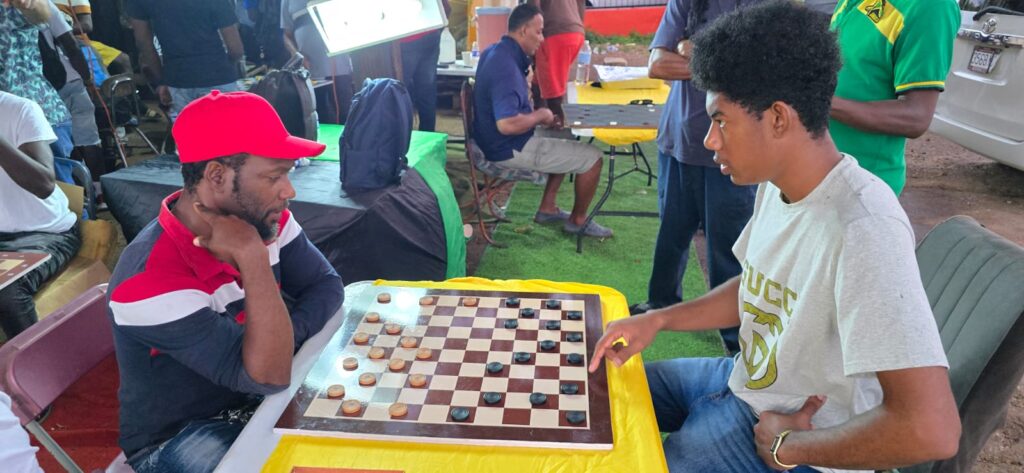
JDA kicks off 2026 with a thrilling event in St Elizabeth
KINGSTON, Jamaica — Jamaica’s intellectual sports community has embarked on an ambitious national initiative with the formal launch of the 2026 Strategic Thinkers Campaign by the Jamaica Draughts Association (JDA). The campaign debuted at a competitive gathering hosted at the Junction Draughts Club in St. Elizabeth, attracting over 65 participants comprising elite players and distinguished personalities from across the draughts community.
The event showcased exceptional talent, notably featuring Shavier Jaddo, the JDA’s National Youth Champion, who delivered a commanding performance. Jaddo secured a decisive 6-0 victory against Justin Angus in traditional Jamaican Draughts and triumphed 2-0 over Samuel Peirce in International Draughts-100. These wins reinforce his status as the premier Under-20 Jamaican draughts competitor.
International Grandmaster Wayne Reid, who holds multiple titles including 2025 JDA National Champion and 2017 Pan-American Champion, demonstrated his expertise with a 6-0 win against Samuel Peirce in Jamaican Draughts-64. Peirce faced additional challenges, suffering another 6-0 defeat against Top Master Jermaine Delattibudiere.
The JDA has announced its selection of national representatives for international competitions, with Reid, Federation Master Jermaine Hutchinson, Delattibudiere, and Jaddo chosen to compete in the forthcoming Pan American Championships.
Beyond competition, the Association emphasizes the cognitive benefits of draughts, citing documented improvements in strategic thinking, problem-solving capabilities, and mathematical proficiency among youth participants. In February, the JDA will establish two new draughts clubs at Iona and Brown’s Town High Schools, implementing specialized training programs designed to enhance critical thinking skills.
The Association’s 2026 calendar includes significant international engagements, notably the 10×10 Pan-American Championship in Suriname this April and the American Pool Checkers Association National Tournament scheduled for July in Memphis, Tennessee. The next local event will be held at Sabina Park’s Stingers Camp with partial sponsorship from Caribbean Jewellers Limited. The JDA continues to seek additional sponsorship partnerships to support the expansion of draughts throughout Jamaica.
-

SAINT International’s Naki Depass books Lafayette 148’s Spring 2026 campaign
Jamaican fashion model Naki Depass has achieved another significant milestone in her burgeoning international career with her selection as the face of American luxury brand Lafayette 148’s Spring 2026 advertising campaign. The Clarendon-born beauty features prominently in the newly released campaign showcasing the brand’s latest womenswear collection, demonstrating remarkable versatility across multiple high-fashion looks.
Depass, photographed against the urban backdrop of New York’s SoHo neighborhood, brings sophisticated elegance to the campaign’s aesthetic. Her portfolio includes everything from contemporary leather moto jackets and matte crepe knit shirt jackets to grid plaid crepe wide-leg trousers and refined shirtdresses. The October 2025 photoshoot was conducted under the creative direction of renowned photographer Dan Martensen and stylist Sasha Kelly.
In an exclusive interview from her current location in Jersey City, where temperatures had plunged to near-freezing conditions, Depass expressed enthusiasm about collaborating with the Lafayette 148 team. ‘Working with Dan and the entire creative team was an absolutely fantastic experience,’ the model revealed. ‘The outdoor location shoot in SoHo provided dynamic energy that I’ve always appreciated about fashion photography.’
Depass, who holds an accounting degree from the University of the West Indies (Class of 2020), particularly praised the brand’s design philosophy: ‘Lafayette 148’s collections strike that perfect balance between chic sophistication and timeless elegance. Many pieces from the campaign are items I would personally incorporate into my own wardrobe.’
The luxury brand, founded in 1996 by Deirdre Quinn and partners Shun Yen Siu and Ida Siu, derives its name from its original SoHo address at 148 Lafayette Street. This collaboration represents another high-profile achievement for Depass, who celebrates ten years in the modeling industry this year. Her career launched spectacularly with a runway debut for Burberry’s Fall/Winter 2016 collection shortly after being discovered by SAINT International CEO Deiwght Peters.
Reflecting on her decade-long journey, Depass shared: ‘Looking back at everything accomplished feels somewhat surreal. That I continue to thrive in this industry with so much still ahead feels incredibly rewarding. My debut show in London with Deiwght seems like just yesterday—these ten years have passed with astonishing speed.’
Despite her professional success in frigid climates, the Jamaican model confessed to preferring warmer temperatures: ‘My physiology is definitely optimized for summer conditions, or perhaps mild spring weather. I must admit that extreme winter cold remains outside my comfort zone.’
Depass prepares for her next professional engagement at New York Fashion Week, scheduled to commence on February 11, 2026, where she is expected to appear in multiple designer presentations.
